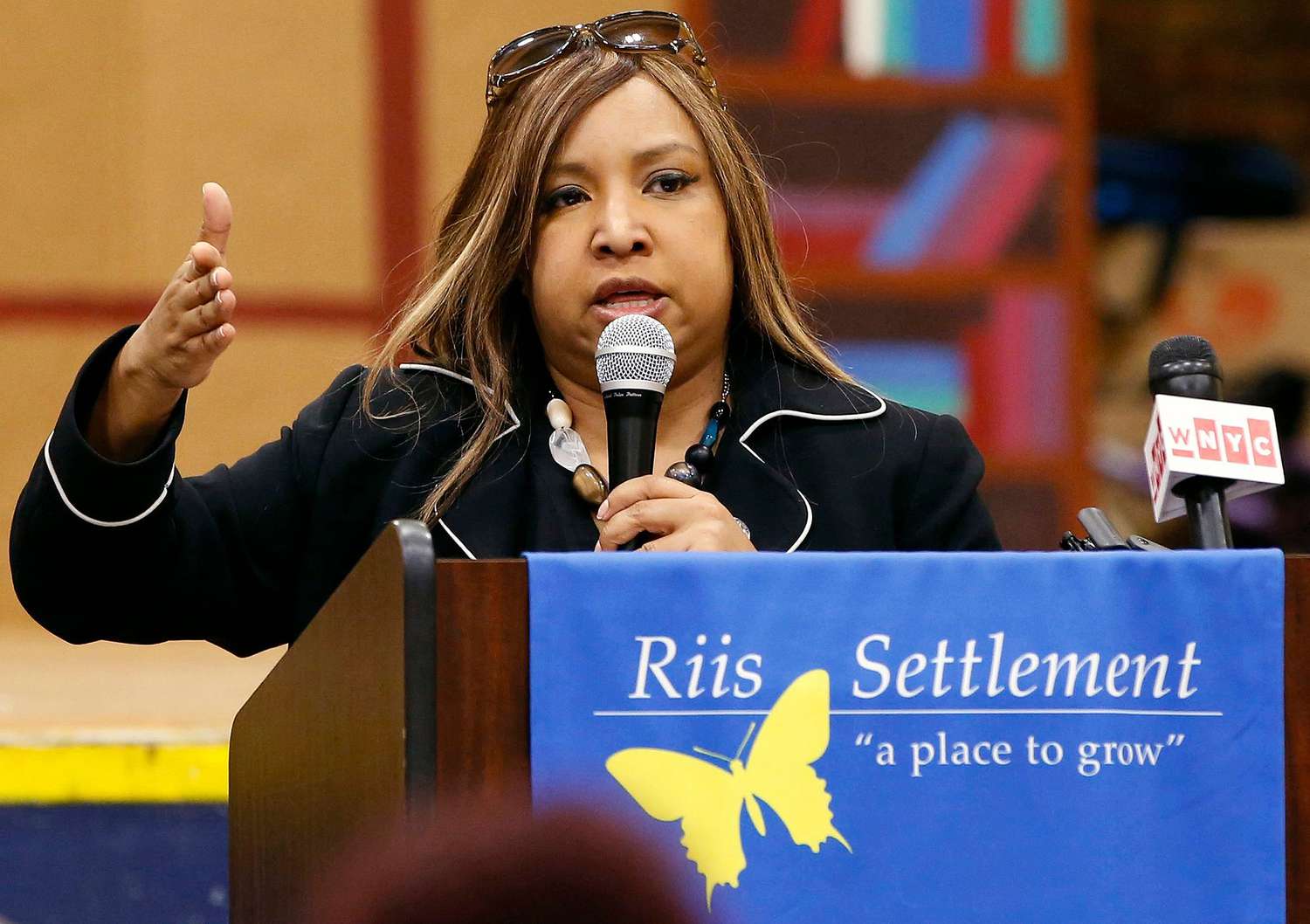Trump Official Temporarily Banned From Office After People Said She Tricked Them with Pro-Trump Video

A former housing official in Donald Trump's administration has been banned from holding federal office for four years and issued a $1,000 fine over a controversial video that aired during the 2020 Republican National Convention.
The fine is part of a civil settlement between Lynne Patton — a former administrator for the Department of Housing and Urban Development — and the U.S. Office of Special Counsel.
In the settlement agreement, Patton "admitted that she engaged in activity in violation of the Hatch Act and agreed to serve a 48-month debarment from federal employment and to pay a $1000 fine," according to a letter sent by the U.S. Office of Special Counsel to the ethics watchdog group Citizens for Responsibility and Ethics in Washington (CREW).
CREW filed a Hatch Act complaint against Patton, now 48, in 2018.
The Hatch Act prohibits civil employees in the executive branch of the federal government (with the exception of the president and vice president) from engaging in overtly political activity.
According to the counsel that investigated the claims, Patton "violated the law by using her official authority to produce a video segment for the 2020 Republican National Convention."
That two-minute clip included interviews with public housing tenants who appeared to praise President Trump and slam New York City Mayor Bill de Blasio, a Democrat.
The Office of Special Counsel said that Patton created the video after receiving permission to temporarily live in public housing, where she would "observe living conditions."
"During her approximately one-month stay, Patton met residents and later leveraged one of these relationships to recruit participants to film a video that would air at the RNC," the Office of Special Counsel said in a statement released Tuesday. "Patton wanted NYCHA residents to appear in the video to explain how their standard of living had improved under the Trump administration."
But three of those featured in the video told The New York Times that not only had they never been told how their interviews would be used, they did not support Trump at all.
"I am not a Trump supporter," one of the tenants, Claudia Perez, told the Times. "I am not a supporter of his racist policies on immigration. I am a first-generation Honduran. It was my people he was sending back."
Shortly after the video aired last year, a Trump campaign spokesman told the Times, "All interview subjects were fully aware of the purpose of the interviews" and that "Lynne Patton was acting in her own personal capacity" in creating the clip.
Patton also initially denied wrongdoing, saying in a statement to the Times: "Each participated regardless of political party because they recognized the importance of having a voice on the national stage and the undeniable improvements that have transpired under this administration."
After her settlement was announced, Patton remained defiant on Twitter, writing, "No length of debarment will ever be able to outlast the permanent & positive trajectory upon which @NYCHA is now advancing thanks to [Ben Carson] & President @realdonaldtrump. I sleep well at night knowing the residents told @CNN they were never 'tricked.' "
The video created by Patton wasn't the only controversial footage to air during the 2020 RNC.
Separately, a group of new U.S. citizens told reporters they weren't aware their naturalization ceremony would air during the political event, which it did on night two.
A spokesperson for the Trump White House told PEOPLE that the campaign's use of footage from the ceremony did not violate any laws because the White House had first published the content on its website, which is part of the public domain.
Patton — who previously worked as an aide to Trump's son Eric — was a fixture of the Trump campaign in 2016, delivering her own speech at the Republican National Convention that year. "As a minority, I personally pledge to you that Donald Trump knows that your life matters, he knows that my life matters," she said.
She came under fire in 2018 for controversial social media posts, one of which falsely accused CNN's Anderson Cooper of faking a live shot during coverage of Hurricane Florence.
Another post on one of her verified accounts mocked sexual assault allegations against then-Supreme Court nominee Brett Kavanaugh.
Source: Read Full Article

